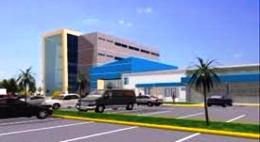|
| Education System in Honduras |
Primary Education
The 6 years of Honduran primary school education are free, although less that 32% of pupils receive their educational grounding without repeating grades. These children represent only half of the original school entrants, and will have taken an average of 9.4 years to complete this phase.Secondary Education
The 6 years of Honduran primary school education are free, although less that 32% of pupils receive their educational grounding without repeating grades. These children represent only half of the original school entrants, and will have taken an average of 9.4 years to complete this phase.Vocational Education
The Honduran National Vocational Training Institute offers vocational training to the nation’s workers. Although independent, it networks with government and the business sector in order to contribute towards growth in national productivity.Tertiary Education
 There are 11 universities in the Honduras.These are a mixture of state, private and those with religious affiliations. Sadly, like secondary schools these are also only based in cities, and then just in Tegucigalpa, San Pedro Sula and Comayagüela. As a consequence, the vast majority of the country's young people are deprived of opportunities taken for granted in many places elsewhere.
There are 11 universities in the Honduras.These are a mixture of state, private and those with religious affiliations. Sadly, like secondary schools these are also only based in cities, and then just in Tegucigalpa, San Pedro Sula and Comayagüela. As a consequence, the vast majority of the country's young people are deprived of opportunities taken for granted in many places elsewhere. Of these, the Universidad Tecnológica Centroamericana illustrated opposite enjoys the best reputation.
